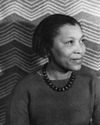
Genres are the Sirens of literary criticism. They seem friendly and alluring, but they are dangerously elusive shape-shifters. You really have to lash yourself to the mast.
Genres tend to be pictured as the bones of literary texts, the formal properties onto which the imagery and details of character, plot, and setting are grafted. These skeletons are transmissible across time. So “Oedipus Rex” (circa 430 B.C.E.), “Hamlet” (circa 1600), and “Death of a Salesman” (1949) are all called tragedies. But, apart from unhappy endings, those plays are more different than they are alike. It is hard to extract a robust definition of “tragedy” that works for all three. Similarly, we call the Odyssey an epic. But why isn’t it a novel? Because it’s written in verse? Then how about a prose translation: would that be a novel? It’s not obvious why it wouldn’t. The Odyssey is a story about a family separated by war. So is “War and Peace,” and we don’t categorize that as an epic.
There is also the problem of basing our generalizations about literary types on a highly selective group of texts. Of the hundreds of tragedies estimated to have been written in ancient Greece, we know of only thirty-two complete ones, attributed to just three playwrights. We don’t know all the forms that tragedy, as the Greeks understood it, might have taken.
In the case of a genre like the novel, too, we are operating with a ridiculously small sample size. As Franco Moretti pointed out, in an article published in 2000, when literature professors talk about “the nineteenth-century British novel” they are talking about roughly two hundred books. He estimated that this is 0.5 per cent of all the novels published in Great Britain in the nineteenth century.
Denne historien er fra November 18, 2024-utgaven av The New Yorker.
Start din 7-dagers gratis prøveperiode på Magzter GOLD for å få tilgang til tusenvis av utvalgte premiumhistorier og 9000+ magasiner og aviser.
Allerede abonnent ? Logg på
Denne historien er fra November 18, 2024-utgaven av The New Yorker.
Start din 7-dagers gratis prøveperiode på Magzter GOLD for å få tilgang til tusenvis av utvalgte premiumhistorier og 9000+ magasiner og aviser.
Allerede abonnent? Logg på

MING HAN ONG
Thadeus had never offered to take Johnny Mac out for a meal before. This is new, Johnny Mac says, grinning. For twenty-five years, Johnny Mac worked as a tenant-rights lawyer. He is a fount of varied and surprising knowledge.

ZORA NEALE HURSTON'S CHOSEN PEOPLE
What a long-unpublished novel reveals about her magnificent obsession.

FEAR AND LOATHING
Are all our arguments really over who's harmed?

ODD JOBS
\"Severance,\" on Apple TV+.

ON A MISSION FROM GOD
Inside the movement to redirect billions of taxpayer dollars to private religious schools.

MAKE HIM LAUGH
How Lorne Michaels's sensibility governs \"Saturday Night Live.\"

TABULA RASA
“Bleb” is worth eight points in Scrabble. Thought you might like to know. I have known the word since Wednesday, June 11, 1958, when I learned it from a company physician at Time Incorporated, in Rockefeller Center. He said I should have been hospitalized four days ago, but there was nothing much to do about it now, go back to work.

WELCOME TO OUR FIRST/FINAL BOOK CLUB!
Thank you, everyone, for coming to our first/final book-club meeting. Apologies for how long it's taken us to settle on a date, but in between work, kids, and the pretense of joining adult recreational sports leagues, it seems that we all have incredibly busy schedules.

THE POISON MACHINE
The talk-show host Yinon Magal's hard-line tactics.

MEAN TIME
“Hard Truths.”